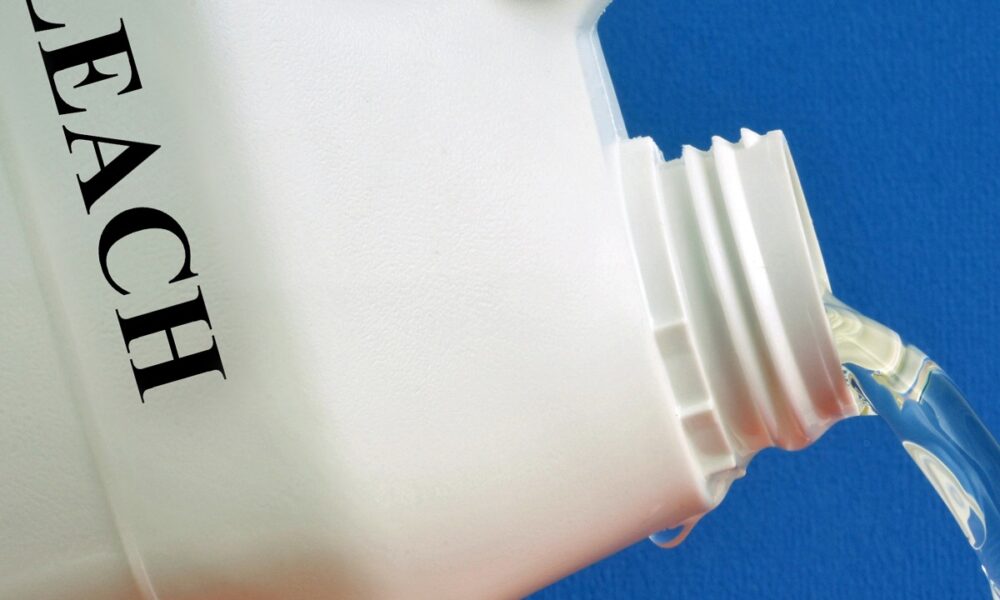
The dangers and what to do
Bleaching is a chemical process that removes the pigment from your hair. When someone with naturally dark hair wants to change their hair color, bleaching creates a clean slate for the new color. It also helps to enhance the appearance of the new color.
While both are called bleach, there is a big difference between hair bleach and household bleach. And you can never replace one of them with the other.
But what happens if you accidentally put bleach on your hair? Read on to find out the answer!
What will happen if you accidentally put bleach on your hair?
Putting bleach to clean your hair can cause a lot of damage and can damage your scalp. the effects Will vary depending on location.
If the cleaning bleach gets near or on your scalp, it can chemically burn your head and/or cause complete hair loss in this patch. This is because bleach cleaning will completely destroy the hair root.
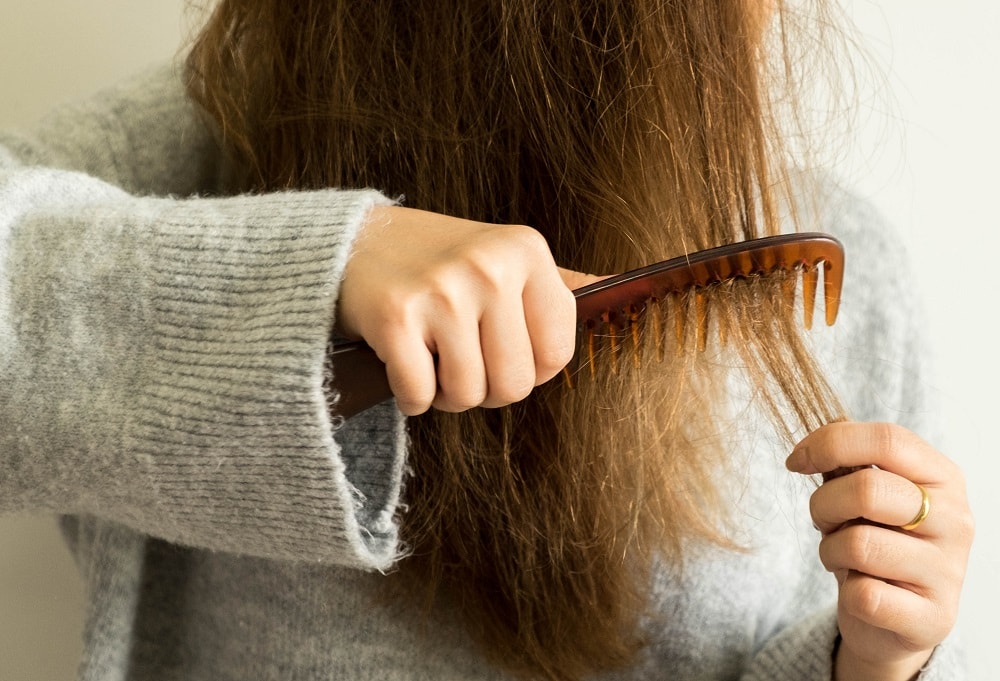
If the bleach only touches the ends of your hair or somewhere in the middle, it will do the following:
- Destroys the hair area it touches, making it brittle and dry
- Completely change the texture of your hair
- If it touches synthetic hair, the hair is likely to melt
If you accidentally get cleaning bleach on your hair or scalp, wash it off immediately with cool water and see a doctor if necessary.
Why never put bleach to clean your hair?
Simply put, cleaning bleach was not created for use on human hair. The bleach hair stylists use to lighten hair is completely different from bleach cleaning.
Hair bleach is a powdered form of hydrogen peroxide, while cleaning bleach is a liquid combination of water and sodium hypochlorite.
When it comes to your hair, take our advice: keep the cleaning bleach just for cleaning. Because it can cause…
chemical burns
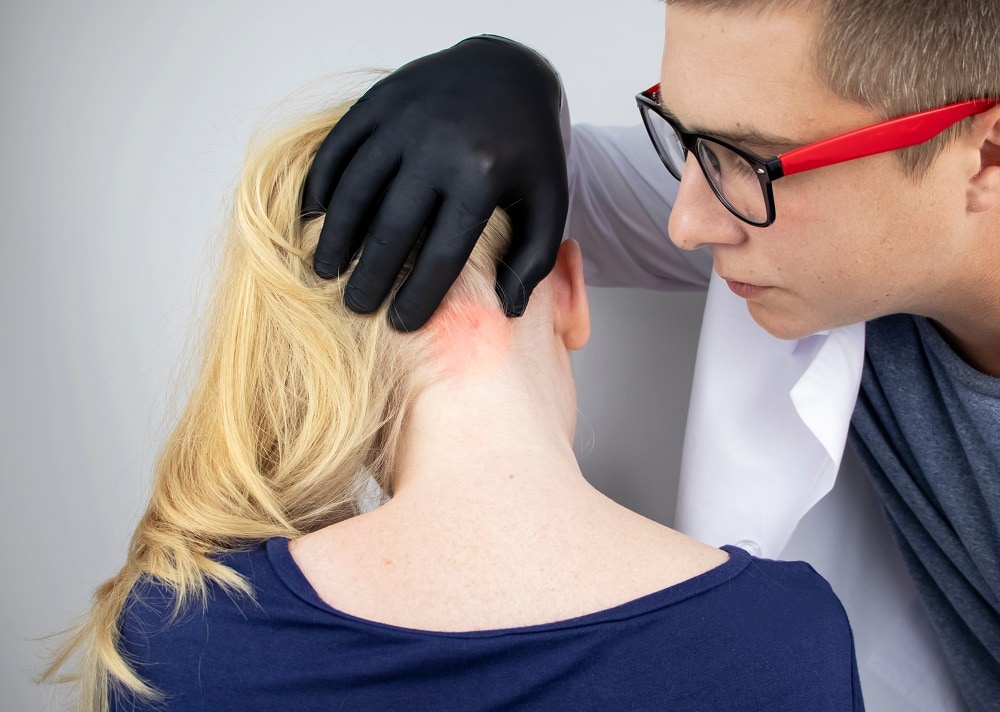
Bleach will not only make your hair fall out, but it can also cause you severe chemical burns. They can be as mild as a rash or irritation or as severe as causing your skin to blister and bleed. If you experience bleach burns, you should seek medical attention immediately.
In addition to making your hair fall out, bleach can cause severe chemical burns. The burns may cause a rash or irritation or cause your skin to bleed and blister. If you get a bleach burn, you should seek medical help immediately.
blindness
If you pour bleach on your head, some may drip down your face into your eyes. If this happens, you will immediately feel a burning sensation as the moisture in your eyes mixes with the bleach to form acid.
Call for assistance and flush your eyes with lukewarm water to prevent permanent eye damage and vision loss.
hair loss
Bleach for cleaning can strip the hair of its natural oils and make it dry, brittle and easy to break. The caustic chemicals can even burn the hair shafts and scalp, which can cause permanent hair loss.
Chlorine toxicity
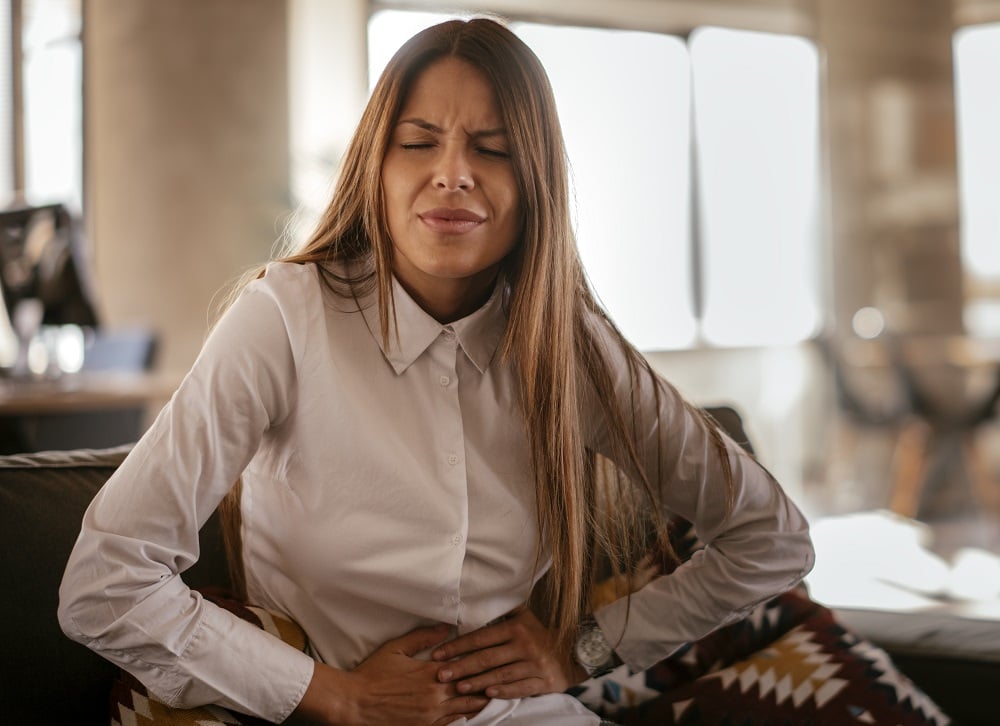
Bleach contains a lot of chlorine; That’s why your swimming pool smells like bleach when you add chemicals. When a concentrated amount of chlorine gets on your bare skin, it can be absorbed into the bloodstream.
This causes the chemicals in your body to become unbalanced and creates acid within your blood vessels. If you have a case of chlorine poisoning, you may begin to notice the following:
- Abdominal pain
- blood in your stool
- Burning all over the body
- vomiting
You should always be very careful around cleaning bleach because it can easily splash and reach your eyes or other parts of your body; This can result in a visit to the hospital.
What to do if you put bleach to clean your hair?
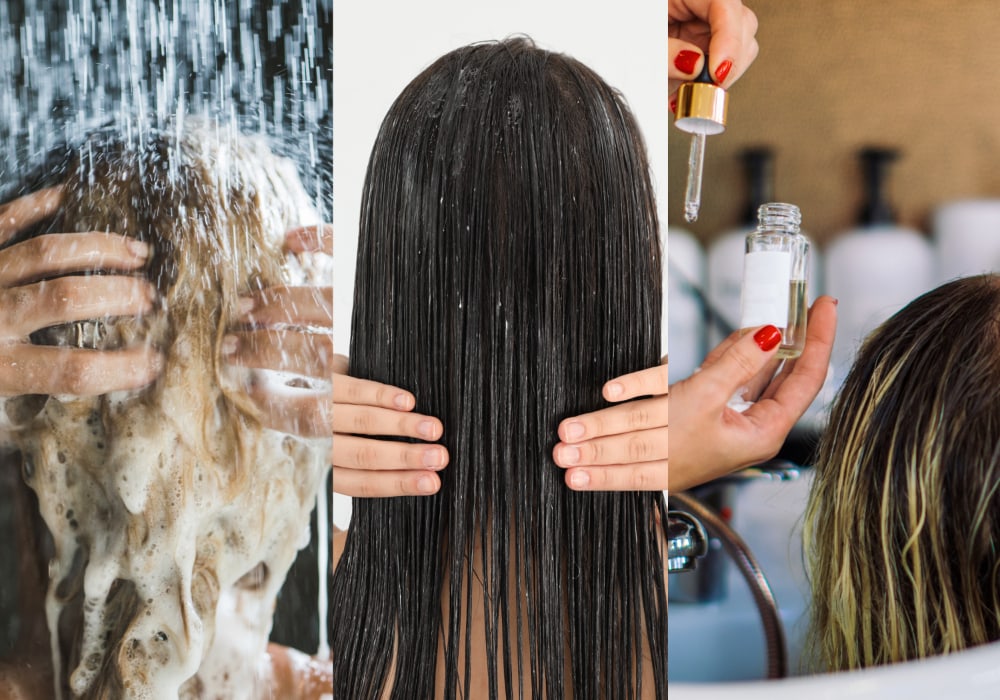
What if you were mistaken in thinking that cleaning bleach is the right thing to put on your hair? There will likely be damage that you can’t fix until it grows. However, there may be some things you can do to reduce the effects.
- Wash your hair immediately. Make sure your hair is washed thoroughly, and rinse out as much of the bleach as possible. Be careful not to let the bleach get into your eyes while you do this.
- Use a deep conditioner to moisturize your hair as much as possible. Bleach will dry out your hair, and conditioning treatments will help counteract this effect. Continue to condition your hair every day for a while.
- Avoid using a hair dryer or flat iron for a few days. The heat can cause further damage as it continues to dry it out.
- Add a protein treatment to your hair. Cleaning bleach will steal protein, so adding as much as possible helps.
- Put oil treatments in your hair often. Natural oils can help keep your hair moisturized and reduce bleach damage. Add things like coconut, almond or argan oil.
Immediate reactions to cleaning bleach on hair
If cleaning bleach comes into contact with your hair, it can cause immediate reactions such as:
- Immediate reactions to cleaning bleach in the hair can include irritation, burning, itching and redness
- Avoid getting bleach on your scalp; Wash it off immediately if it comes into contact with the skin
- Dryness and roughness of the hair and scalp
- Hair breakage and damage
- Hair color change
- Hair loss in severe cases
- If any serious reactions occur, seek medical attention immediately.
Immediate reactions to cleaning bleach in the hair can include irritation, burning, itching and redness. It is important to avoid getting bleach on the scalp and wash it off immediately if it comes into contact with the skin. Bleach can also cause damage and breakage to the hair, so it is important to use it carefully and follow the instructions closely. If any serious reactions occur, seek medical attention immediately.
Long-term damage caused by cleaning bleach on hair
Common questions
Here are some questions that are often asked when discussing what happens if you put bleach on your hair.
Using bleach to clean your hair will make it brittle and break. Some of it may even fall off. If you have synthetic hair, such as a weave, it may melt from the chemicals in the bleach.
Lightening your hair color is known as bleaching because of the effect of bleach on clothes. If you soak an article of clothing in bleach, it will remove all the color from it.
The color stripping solution used in hair contains hydrogen peroxide, a substance that can remove the color without harming your hair and skin.
Household bleach is diluted with water but is still a powerful chemical. Chlorine can be absorbed into your skin, and you can start seeing symptoms within minutes.
So, what do you do if you put bleach to clean your hair?
The best thing you can do after using hair bleach is to act fast. You should wash your hair thoroughly with plenty of soap and water. Use conditioning treatment as soon as possible and continue to do it often.
However, if you experience illness or discomfort on your skin or get it in your eyes, you should seek medical attention. Taking action as soon as possible could mean the difference in saving your hair or the damage you will have to live with for a long time.